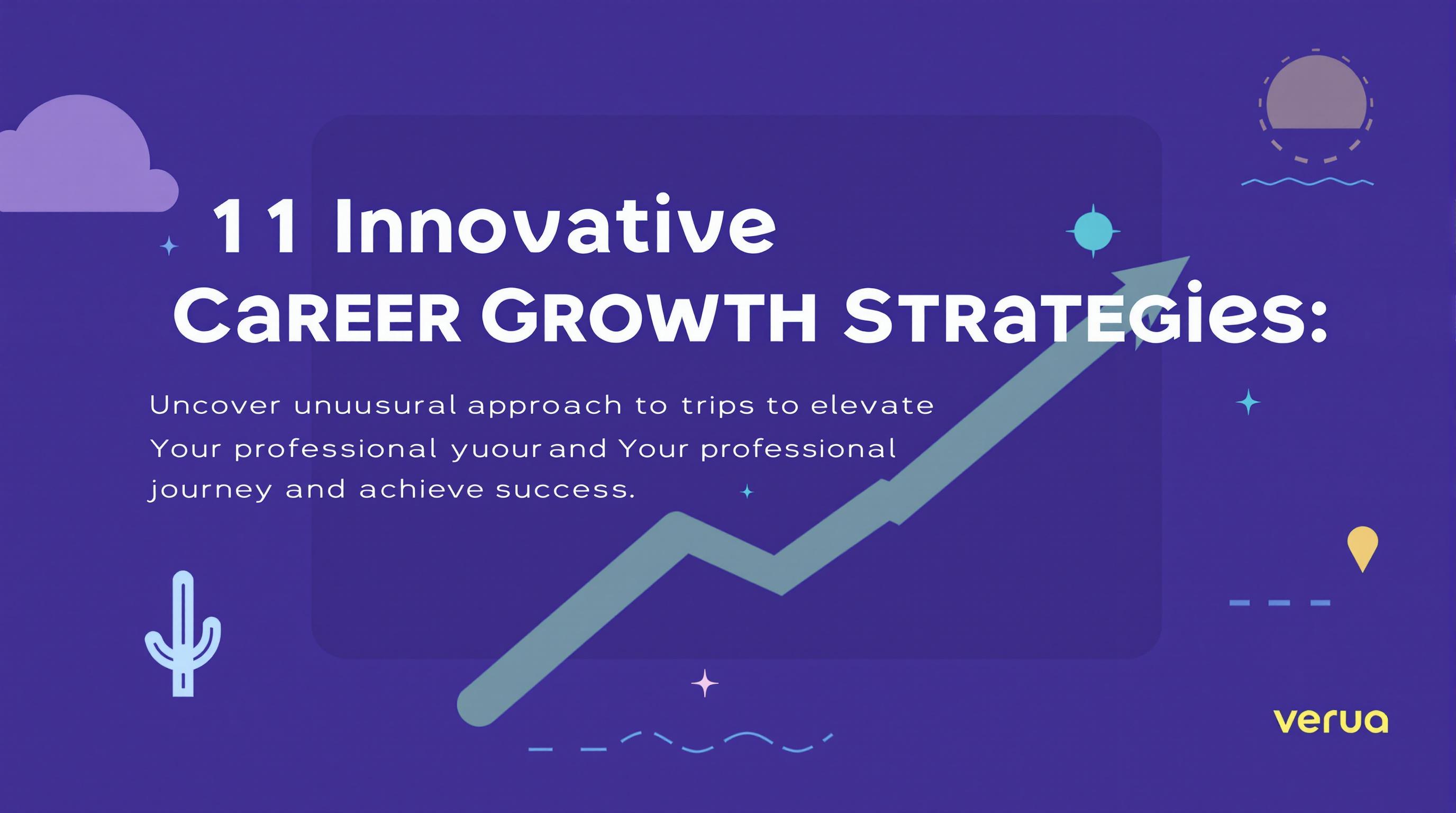Related Articles
- Navigating the Talent Labyrinth: How Emotional Intelligence Is Shaping New Hiring Practices in Unseen Markets
- Behind the Scenes: How Automating HR Processes Is Redefining the Future of Recruitment and Job-Seeking Strategies
- Beneath the Surface: Unveiling the Surprising Role of Environmental Sustainability in Shaping Future Careers
- Exploring the Quirky Side of Remote Work: How Hobbies Are Fueling Professional Success in Unexpected Ways
- How the Remote Revolution is Inspiring Unlikely Friendships Across Continents: A Study of Global Connectedness
- The Unforeseen Bond: How Virtual Coworking Spaces Foster Unexpected Connections Amidst Remote Work
9 Esoteric Career Growth Strategies: Tap into the Unconventional to Elevate Your Professional Journey and Achieve Distinction
9 Esoteric Career Growth Strategies: Tap into the Unconventional to Elevate Your Professional Journey and Achieve Distinction
9 Esoteric Career Growth Strategies: Tap into the Unconventional to Elevate Your Professional Journey and Achieve Distinction
1. Embrace the Power of Storytelling
In an era where data prevails, the art of storytelling is often overlooked. Yet, weaving narratives into your professional journey creates a resonance that facts alone cannot achieve. Every presentation or meeting becomes an opportunity to illustrate your experiences and insights through compelling anecdotes, painting a vivid picture that engages your audience.
Consider the case of Steve Jobs, known for his legendary keynote presentations that captivated both investors and consumers alike. By incorporating personal stories about his journey, he did not just sell products; he sold a vision. Channeling the power of storytelling into your career can elevate your professional presence exponentially.
To master this technique, practice crafting your career narrative. Reflect on pivotal experiences that shaped your career and identify the lessons learned, making your story relatable and inspiring to others.
2. Network with Purpose
Networking has long been heralded as a crucial component of career advancement. However, networking with purpose transcends simply collecting business cards. It involves fostering genuine relationships that are mutually beneficial, centered around shared interests and values.
Engaging in industry events with a clear intent—be it to seek mentorship, collaboration, or to share knowledge—can be prolific. A study published in the Harvard Business Review highlights that relationships built on common ground lead to greater professional satisfaction and opportunities.
Pursue connections outside your comfort zone as well; diverse networks provide fresh perspectives and can help illuminate new paths for growth. Utilize social platforms like LinkedIn to not only connect but also engage meaningfully with others’ content.
3. Seek Out a Reverse Mentor
Traditionally, mentorship has been viewed as a one-way street, often flowing from more experienced professionals to those less seasoned. However, the concept of reverse mentoring challenges this notion by advocating for learning from younger, less experienced individuals. This unconventional approach can yield profound insights into emerging trends and technological advances.
For example, companies like Deloitte have embraced reverse mentorship as a means to encourage intergenerational collaboration and innovation. Such initiatives help bridge the gap between different age groups, fostering a culture of learning on both sides.
To implement this strategy, seek out younger colleagues with skills or knowledge that can enrich your own understanding. Approach the relationship as an exchange of ideas, ensuring both parties benefit from the experience.
4. Cultivate an Online Presence
In today’s digital landscape, having an online presence is essential yet often misunderstood. It is not merely about maintaining LinkedIn profiles; instead, it involves creating a personal brand that reflects your professional values and expertise. Regularly sharing thought leadership pieces or engaging in discussions can establish your authority in your niche.
Research shows that professionals with a strong online presence are more likely to be seen as industry experts and may attract new opportunities. According to a study by CareerBuilder, 70% of employers use social media to screen candidates during the hiring process.
Begin this journey by curating quality content that resonates with your target audience. Over time, your online persona will become synonymous with your expertise, enabling you to stand out in a crowded marketplace.
5. Develop a Personal Board of Advisors
While mentors provide guidance, a personal board of advisors elevates this concept by incorporating diverse viewpoints and expertise. Comprising several individuals with varied backgrounds, this board can offer multifaceted perspectives on decisions affecting your career.
Consider it akin to a corporate board, where each member contributes unique insights towards your personal growth. This approach can help mitigate risks and unveil opportunities that you may overlook if relying solely on one source of guidance.
To establish your board, identify individuals from varying industries, levels of experience, and areas of expertise. Regularly solicit their feedback and create an open channel for discussion to foster this advisory relationship.
6. Engage in Continuous Learning
The world is in a constant state of flux, and to remain relevant, professionals must commit to lifelong learning. This goes beyond formal education, encompassing online courses, workshops, and even self-directed study. Being adaptable and knowledgeable in emerging trends can position you as a leader in your field.
According to LinkedIn’s 2022 Workforce Learning Report, 94% of employees indicate they would stay at a company longer if it invested in their careers. Investing in continuous learning demonstrates to employers that you are proactive and dedicated to self-improvement.
Start by setting aside time for weekly learning, whether through podcasts, literature relevant to your industry, or professional development courses. This commitment will not only enhance your skill set but will also bolster your marketability.
7. Explore Other Departments
Engaging with colleagues across various departments can unearth hidden talents and broaden your horizon within the company. Exploring different facets of the organization allows for a more comprehensive understanding of how various components work in harmony, ultimately illuminating potential opportunities for collaboration.
Research by the Institute for Corporate Productivity reveals that organizations with strong cross-functional collaboration are 50% more likely to be high-performing. Inter-departmental support fosters innovation and enhances the overall workplace environment.
Volunteering for cross-departmental projects or simply initiating conversations with colleagues outside your sphere can yield unexpected rewards. This hands-on approach will enhance your visibility while nurturing valuable relationships across the organization.
8. Practice Mindfulness
In the fast-paced world of professional growth, mindfulness is often neglected, yet it serves as an essential tool for clear decision-making and emotional intelligence. Practicing mindfulness fosters self-awareness, enabling individuals to approach challenges with an open mind and calm demeanor.
Studies indicate that mindfulness in the workplace reduces stress and improves focus, thereby enhancing overall productivity. Companies like Google have incorporated mindfulness practices into their work culture, leading to happy, engaged employees who thrive under pressure.
Consider integrating simple mindfulness practices into your daily routine, such as meditation or reflective journaling. These habits can help sharpen your focus and ensure that you cultivate not just a career but a holistic professional journey.
9. Adopt a Growth Mindset
Embracing a growth mindset—understanding that abilities and intelligence can be developed through dedication and hard work—can profoundly influence your career trajectory. This philosophy encourages resilience, allowing professionals to perceive challenges as opportunities for growth rather than insurmountable obstacles.
Psychologist Carol Dweck, who coined the term, emphasizes that a growth mindset fosters a love for learning and resilience essential for great accomplishment. With this mindset, setbacks become stepping stones toward your ultimate goals.
To adopt a growth mindset, regularly reflect on your performance, celebrating your successes while understanding areas for improvement. This balanced approach to self-assessment propels your personal and professional growth, setting you apart as a distinguished leader.




